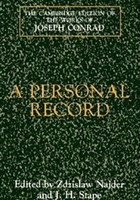
第19章
The devouring in a dismal forest of a luckless Lithuanian dog by my granduncle Nicholas B.in company of two other military and famished scarecrows,symbolized,to my childish imagination,the whole horror of the retreat from Moscow,and the immorality of a conqueror's ambition.An extreme distaste for that objectionable episode has tinged the views I hold as to the character and achievements of Napoleon the Great.I need not say that these are unfavourable.It was morally reprehensible for that great captain to induce a simple-minded Polish gentleman to eat dog by raising in his breast a false hope of national independence.It has been the fate of that credulous nation to starve for upward of a hundred years on a diet of false hopes and--well--dog.It is,when one thinks of it,a singularly poisonous regimen.Some pride in the national constitution which has survived a long course of such dishes is really excusable.
But enough of generalizing.Returning to particulars,Mr.
Nicholas B.confided to his sister-in-law (my grandmother)in his misanthropically laconic manner that this supper in the woods had been nearly "the death of him."This is not surprising.What surprises me is that the story was ever heard of;for granduncle Nicholas differed in this from the generality of military men of Napoleon's time (and perhaps of all time)that he did not like to talk of his campaigns,which began at Friedland and ended some where in the neighbourhood of Bar-le-Duc.His admiration of the great Emperor was unreserved in everything but expression.Like the religion of earnest men,it was too profound a sentiment to be displayed before a world of little faith.Apart from that he seemed as completely devoid of military anecdotes as though he had hardly ever seen a soldier in his life.Proud of his decorations earned before he was twenty-five,he refused to wear the ribbons at the buttonhole in the manner practised to this day in Europe and even was unwilling to display the insignia on festive occasions,as though he wished to conceal them in the fear of appearing boastful.
"It is enough that I have them,"he used to mutter.In the course of thirty years they were seen on his breast only twice--at an auspicious marriage in the family and at the funeral of an old friend.That the wedding which was thus honoured was not the wedding of my mother I learned only late in life,too late to bear a grudge against Mr.Nicholas B.,who made amends at my birth by a long letter of congratulation containing the following prophecy:"He will see better times."Even in his embittered heart there lived a hope.But he was not a true prophet.
He was a man of strange contradictions.Living for many years in his brother's house,the home of many children,a house full of life,of animation,noisy with a constant coming and going of many guests,he kept his habits of solitude and silence.
Considered as obstinately secretive in all his purposes,he was in reality the victim of a most painful irresolution in all matters of civil life.Under his taciturn,phlegmatic behaviour was hidden a faculty of short-lived passionate anger.I suspect he had no talent for narrative;but it seemed to afford him sombre satisfaction to declare that he was the last man to ride over the bridge of the river Elster after the battle of Leipsic.
Lest some construction favourable to his valour should be put on the fact he condescended to explain how it came to pass.It seems that shortly after the retreat began he was sent back to the town where some divisions of the French army (and among them the Polish corps of Prince Joseph Poniatowski),jammed hopelessly in the streets,were being simply exterminated by the troops of the Allied Powers.When asked what it was like in there,Mr.
Nicholas B.muttered only the word "Shambles."Having delivered his message to the Prince he hastened away at once to render an account of his mission to the superior who had sent him.By that time the advance of the enemy had enveloped the town,and he was shot at from houses and chased all the way to the river-bank by a disorderly mob of Austrian Dragoons and Prussian Hussars.The bridge had been mined early in the morning,and his opinion was that the sight of the horsemen converging from many sides in the pursuit of his person alarmed the officer in command of the sappers and caused the premature firing of the charges.He had not gone more than two hundred yards on the other side when he heard the sound of the fatal explosions.Mr.Nicholas B.
concluded his bald narrative with the word "Imbecile,"uttered with the utmost deliberation.It testified to his indignation at the loss of so many thousands of lives.But his phlegmatic physiognomy lighted up when he spoke of his only wound,with something resembling satisfaction.You will see that there was some reason for it when you learn that he was wounded in the heel."Like his Majesty the Emperor Napoleon himself,"he reminded his hearers,with assumed indifference.There can be no doubt that the indifference was assumed,if one thinks what a very distinguished sort of wound it was.In all the history of warfare there are,I believe,only three warriors publicly known to have been wounded in the heel--Achilles and Napoleon--demigods indeed--to whom the familial piety of an unworthy descendant adds the name of the simple mortal,Nicholas B.